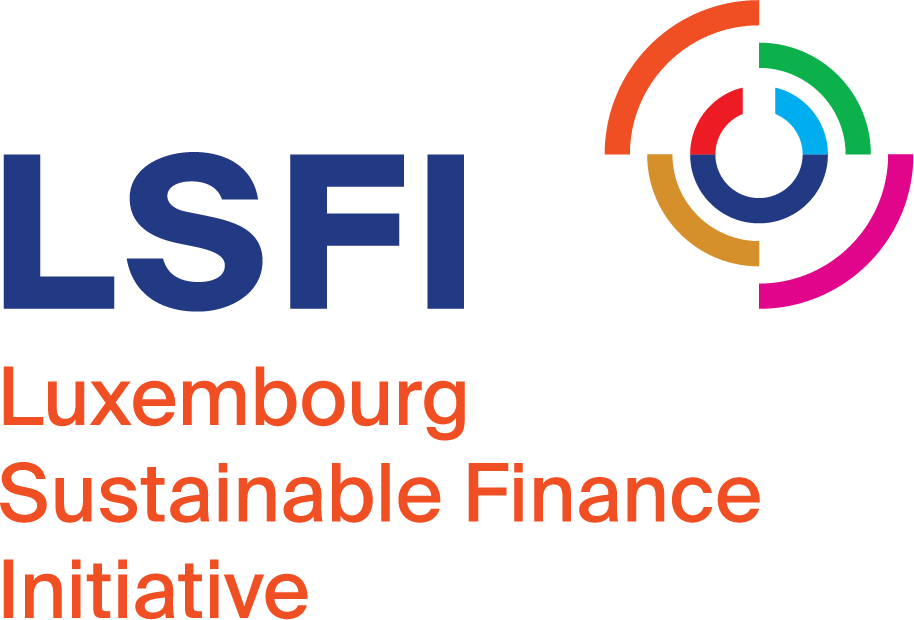Ensuring the transition towards increased sustainability and achieving the climate goals requires the involvement and participation of the financial industry, with banks having a crucial role to play. We discussed about this with Catherine Bourin, Member of the Management Board at ABBL, and Julien Froumouth, Sustainable Finance Adviser at ABBL, who shared with us their views on how the banking sector is adapting to this new reality, how they can support the transition and the role of retail investors.

Catherine Bourin, Member of the Management Board at ABBL

Julien Froumouth, Sustainable Finance Adviser at ABBL
LSFI : Both 2020 and 2021 are being record years for sustainable finance. How is the banking sector adapting to the surge of sustainable finance?
ABBL: The various regulations and reforms initiated within the EU Action Plan on Sustainable Finance are strongly pushing all companies, including the financial sector, to be more transparent on how and to what extent they are considering ESG factors in their policies, their business processes and their investment decisions.
According to a recent publication from Morningstar, around 25% of EU funds have classified themselves as funds promoting ESG characteristics or having sustainable investments as objectives under the new Sustainable Finance Disclosure Regulation (‘SFDR’), representing combined assets of 2.16 trillion euros. And we expect that number to grow in the coming years as standards are getting clarified and harmonised. We have also witnessed a significant increase in green, sustainability and social bonds issuances over the past few years.
The growing attention paid to sustainable finance brings a substantial shift towards greater public disclosure and transparency on ESG matters, especially to avoid greenwashing. But such transparency is bearing its own difficulty and complexity: indeed, one major challenge faced by companies and financial institutions is to properly identify and understand the ESG information flows that need to be captured and processed in order to address those new disclosures requirements and finally offer the right level of transparency to the different stakeholders. Unlocking change will be only possible through the availability, the comparability and the reliability of high-quality data that are easily accessible and at a reasonable cost.
LSFI: What are the main barriers that might stop banks to include sustainability within their investment strategies?
ABBL: There is still confusion around what ESG or sustainable investments stand for in practice. Consequently, bearing the risk of being accused of greenwashing or misselling might dissuade certain actors to jump into the sustainable finance arena. The multiple disclosures requirements at a time when some required data are missing might also represent a show-stopper for banks, although they are willing to include more sustainability into their investment strategies. That’s also the reason why the new regulations and the market practices need to be balanced in a way that they would offer enough flexibility to encourage as many actors as possible to support the transition to a more sustainable economy, in a well-framed and harmonised regulatory environment.
Having said that, all banks will have to consider sustainability factors in one way or another, as incorporating ESG criteria into business processes and risk management frameworks is becoming compulsory, whether there are actively promoting or investing in sustainable products or not.
LSFI: How can banks support the transition towards increased sustainability and why are they a key actor?
ABBL: The targets set by the recently-agreed Europe’s Climate Law and at the international level (e.g. the US, China or Canada) to reduce greenhouse emissions, reach carbon-neutrality and the broader Sustainable Development Goals represent staggering challenges. Especially when considering the amount of investments needed to make the transition to a net-zero economy. To this end, the financial sector will be crucial to meeting those targets. Financial institutions, including banks, in their various roles as lenders, asset managers, investors, advisers and issuers, are the core interrelated components for channelling capital to sectors, activities, projects and companies that enable a more sustainable path for economic growth.
Along with offering lending, financing and investing capabilities, we can also see the role of banks to support that shift from a different angle. Banks also have a key role to play in raising awareness and educating their clients on sustainability matters. They will also have to disclose how they are supporting their customers and counterparties in their own sustainability adaptation, through permanent dialogue and clear engagement.
LSFI: Some of the shift and push towards increased sustainability is coming from the customer, in the case of banks, private investors. Where has the increased customer demand being identified in this regard?
ABBL: Demand for ESG-compliant investment products is surging and spurring banks as well as insurance companies and asset managers to manufacture and recommend investment solutions in sustainable projects and companies. We also see that sustainable funds are pulling now more cash than conventional funds. This high demand is coming from both institutional and retail investors, incentivising distributors of financial products like banks to recommend and offer more and more green or sustainable products, and ultimately pushing back pressure on product manufacturers like funds to develop an adequate offering to this end.
The amending delegated acts recently published by the European Commission on 21 April 2021 are now placing customers’ sustainability preferences at the same level as other information with their investment knowledge and experience or their risk-tolerance.
Therefore, one of the biggest upcoming challenges for banks will be to understand and navigate within the broad range of investment products that qualified themselves as sustainable and select the ones that are addressing best their clients’ sustainability preferences and expectations.
We can observe that large clients are focusing on investments primarily addressing climate change issues, namely divesting from high-emitting sectors or companies in favour of renewable energies or emerging green technologies. However, the pandemic has underlined the importance of other categories of investments. It has been like a wake-up call for investors to look beyond climate-related matters and navigate towards unexplored or less exposed sectors like biodiversity and social or health issues.
The financial industry is moving in directions we would never have imagined a couple of years ago and sustainable finance is one of them, just like digitalisation.
To embrace and unlock that sustainable change rather than being disrupted by it, banks will have to move beyond traditional banking concepts and explore new investment horizons, for meeting their clients’ needs and building more resilient and sustainable business models.





